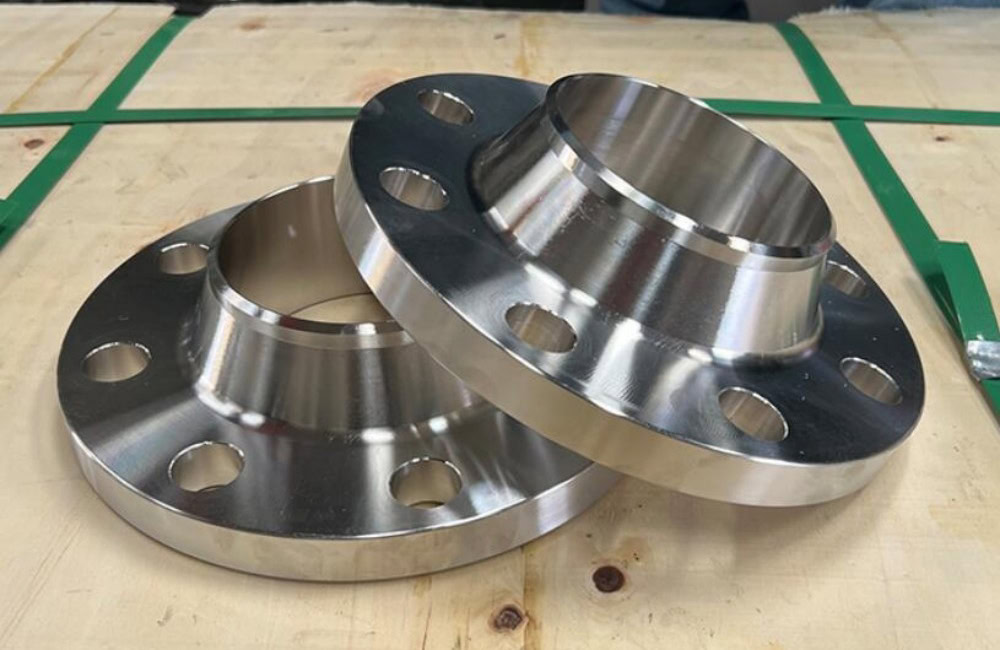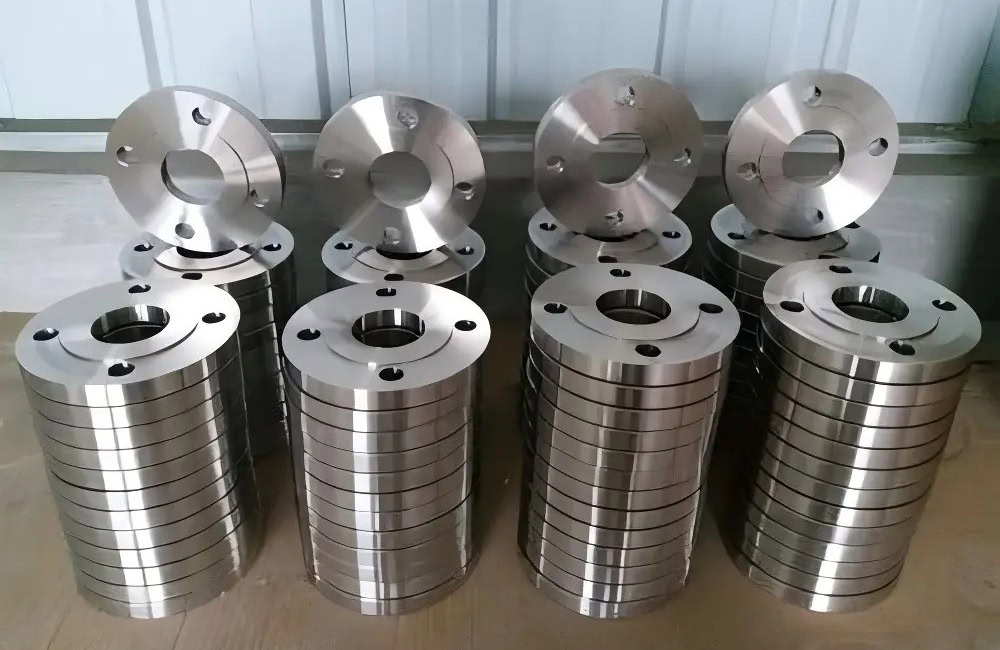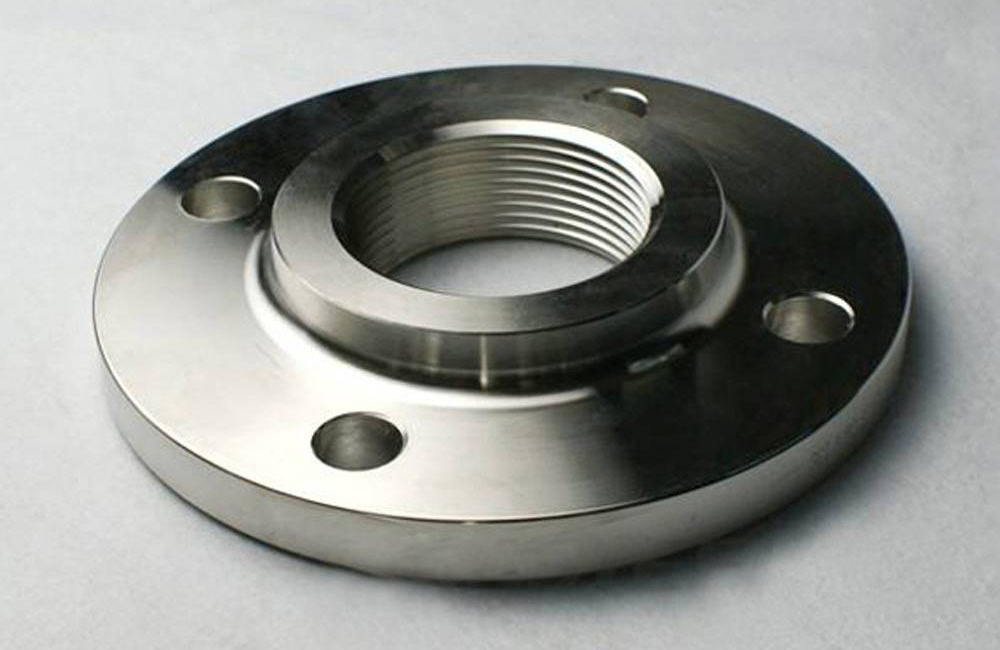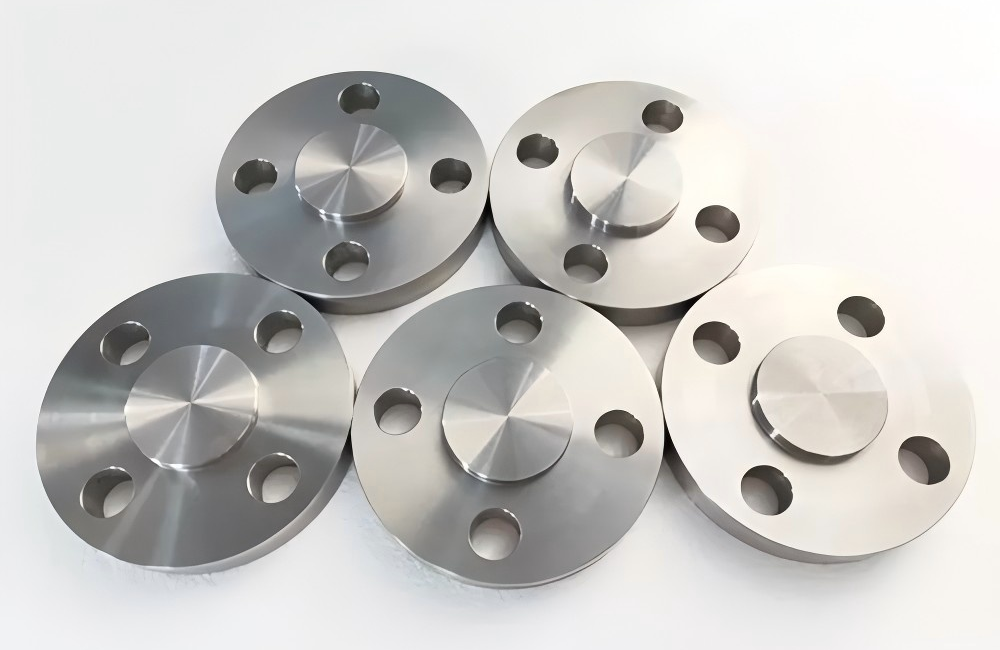Customized Titanium Flanges For Marine Industry
Titanium flanges have become an ideal choice for pipeline connections in the marine field. Titanium has excellent seawater corrosion resistance, effectively resists the erosion of chloride ions in seawater, and can be used for a long time in the marine environment without serious corrosion. Titanium flanges play an indispensable role in marine engineering. From oil and gas pipelines to deep-sea oil and gas extraction platforms.
- Grade 1 Titanium Flange
- Grade 2 Titanium Flange
- Grade 5 Titanium Flange
- Grade 7 Titanium Flange
- PN2.5、PN6、PN10、PN16
- PN25、PN40、PN63、PN100
- Class150、Class300、Class600
- Class900、Class1500、Class2500

Trustworthy Titanium Flange Manufacturer For Marine Industry
As an important component of titanium pipeline connection, titanium flange inherits these excellent properties of titanium and titanium alloy. It ensures the sealing and stability of the entire pipeline system by tightly connecting pipelines to pipelines and pipelines to equipment, and plays an indispensable role in marine engineering. In the marine field, whether it is offshore oil and gas production, seawater desalination projects, or various marine observation and monitoring facilities, pipeline systems are crucial components. As a key link in the pipeline system, the reliability of flange connection directly affects the safety and stable operation of the entire project. In the marine environment, pipeline connection components face many severe challenges, such as the strong corrosiveness of seawater, the attachment of marine organisms, complex water flow and tidal forces, and temperature changes in different regions. These factors put forward extremely high requirements on the performance of pipeline connection materials, and traditional metal materials often find it difficult to meet these harsh conditions.

Weld Neck Titanium Flange
The long neck design of the weld neck titanium flange has a unique stress dispersion effect. When the pipeline is subjected to external force, the long neck can evenly disperse the stress to the entire connection part to avoid stress concentration. The weld neck titanium flange effectively resists the stress concentration caused by temperature changes, pressure fluctuations and the corrosion of seawater in the marine environment.

Slip-On Titanium Flange
Slip-On Titanium Flange has a relatively low manufacturing cost. For some marine engineering projects with limited budgets but requiring titanium flanges, Slip-On Titanium Flange is an economical choice. In some low-pressure, room-temperature marine pipeline systems that do not require particularly strict sealing requirements, it can still meet the use requirements. For example, freshwater pipelines for small ships and aquaculture facilities.

Socket Weld Titanium Flange
Socket weld titanium flange is suitable for the connection of small-diameter pipes, and is usually used in pipe systems with a nominal diameter of DN50 (2 inches) or less. It is used in the pipe connection of some small equipment or instruments in the marine field, such as sampling pipes for marine monitoring equipment and fuel delivery pipes for small ships. Socket weld titanium flanges achieve a balance between strength and sealing performance.

Lap Joint Titanium Flange
The Lap Joint Titanium Flange is characterized by a loose ring and a flange. The loose ring can be freely put on the pipe, and then the flange and the loose ring are connected together by bolts to achieve the connection of the pipe. In the marine environment, the temperature changes frequently. The Lap Joint Titanium Flange effectively adapts to this temperature change and avoids damage to the connection parts caused by thermal stress.

Threaded Titanium Flange
Threaded titanium flanges are connected to pipes through threads. This connection method has the significant advantage of easy installation and disassembly. Threaded connections do not require complex welding operations. The strength of threaded connections is relatively limited and is usually suitable for low-pressure, small-diameter pipeline systems. Such as ventilation ducts and instrument measurement ducts on small ships.

Blind Titanium Flange
The shape of a blind titanium flange is a solid round titanium plate. The blind titanium flange is used to close the end of the pipeline, which plays a role in isolating the internal medium of the pipeline from the external environment. The sealing performance of the blind titanium flange is very important. In the ocean, it is necessary to ensure that seawater, moisture, etc. are effectively prevented from entering the pipeline to avoid corrosion or damage to pipeline.
Titanium flanges have become an indispensable key component of modern marine engineering due to their unparalleled advantages in the marine field. From the perspective of material performance, titanium and titanium alloys have excellent seawater corrosion resistance, high specific strength, good biocompatibility and excellent temperature resistance. In the harsh environment of seawater, which is rich in chloride ions, has complex pH and is subject to microbial erosion, traditional metal materials are very susceptible to corrosion, while the surface of titanium flanges can quickly form a stable and dense oxide film, effectively isolating the contact between seawater and the substrate, greatly extending the service life. Its high specific strength characteristics reduce the weight of the structure while meeting the high strength requirements of the marine pipeline system, which is of great significance for weight-sensitive facilities such as offshore platforms and ships. Good biocompatibility reduces the attachment of marine organisms, avoids pipeline blockage and accelerated corrosion caused by biological fouling, and reduces maintenance costs and operational risks.